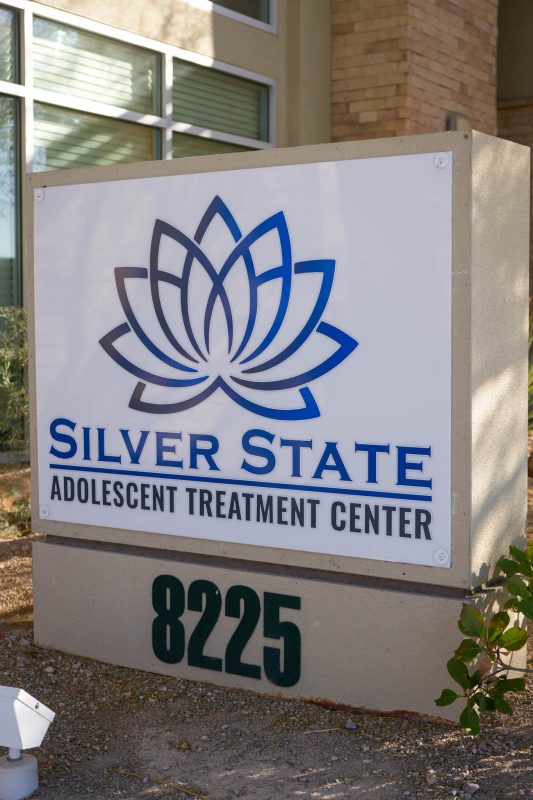Teen Therapy Programs During Residential Mental Health Treatment
Silver State Adolescent's Therapy Programs
Why Therapy Matters in Teen Residential Mental Health Treatment
Therapy is more than a conversation—it’s a life-changing tool that helps teens understand themselves, break harmful patterns, and heal emotional wounds. For teens struggling with mental health issues like anxiety, depression, trauma, or self-harming behaviors, therapy provides clarity, structure, and hope.
In a residential setting, therapy becomes even more effective. Without the distractions or stressors of everyday life, teens can focus fully on their mental health. Daily therapeutic support reinforces emotional growth and offers consistent opportunities to practice new coping skills.
At Silver State, therapy isn’t a one-size-fits-all model. Every teen gets a custom plan built around their specific needs, diagnosis, and strengths—delivered by therapists who specialize in adolescent care.


Our Approach to Teen Mental Health Therapy
We believe that effective therapy for teens must be structured, emotionally safe, and developmentally appropriate. Our licensed clinicians are trained in trauma-informed, evidence-based methods that meet teens at their level—while challenging them to grow.
Therapeutic methods may include:
Cognitive Behavioral Therapy (CBT) – to identify and change unhelpful thought patterns
Dialectical Behavior Therapy (DBT) – to build emotion regulation and distress tolerance
Eye Movement Desensitization and Reprocessing (EMDR) – to process trauma safely
Narrative Therapy – to help teens reframe personal stories
Motivational Interviewing (MI) – to increase readiness for change
Mindfulness-Based Therapy – to manage anxiety and increase present-moment awareness
Creative and Expressive Arts Therapy – to unlock communication beyond words
Therapy sessions are woven into the daily routine at our residential facility, offering both consistency and flexibility. This helps teens integrate what they learn in therapy into everyday interactions and choices.
Therapy for a Range of Teen Mental Health Conditions
Our therapy programs support teens with a wide range of emotional and behavioral challenges, including:
Generalized Anxiety Disorder
Major Depressive Disorder
Post-Traumatic Stress Disorder (PTSD)
Bipolar Disorder
Obsessive-Compulsive Disorder (OCD)
Borderline Personality Traits
Attachment Disorders
Disruptive Mood Dysregulation Disorder (DMDD)
Eating Disorders
Self-Injury and Suicidal Ideation
Co-occurring Substance Use Disorders
Whether your teen is facing one or multiple diagnoses, our treatment team works collaboratively to ensure therapy aligns with their emotional needs and clinical goals.


Why Therapy in a Residential Setting is Different
In residential treatment, therapy happens in a focused, structured environment with fewer outside stressors. Teens live in a therapeutic community where they practice daily routines, build peer relationships, and receive 24/7 support—all of which reinforces the lessons they learn in therapy.
Key benefits of residential therapy include:
Higher level of clinical oversight and support
More frequent therapy sessions (multiple per week)
Real-time support for emotional regulation and crisis moments
Seamless coordination between therapists, medical staff, and support team
Opportunities to build trust and consistency through therapeutic rapport
Safe distance from school, social media, and home-based stressors
This setting allows for deeper therapeutic breakthroughs and better preparation for a return to everyday life.
How We Build a Personalized Therapy Plan
Every teen entering our care receives a full psychiatric, emotional, and behavioral assessment. From there, our team builds a treatment plan that includes:
Weekly individual therapy
Multiple group therapy sessions per week
Family therapy and caregiver check-ins
Goal setting and outcome tracking
Adjustments based on progress and clinical insight
This personalized approach ensures that therapy evolves alongside your teen’s growth and healing.

The Silver State Adolescent Approach
At Silver State Adolescent Treatment, we don’t just provide therapy—we create a foundation for lifelong emotional wellness. Our team specializes in adolescent mental health and knows how to connect with teens in a way that’s validating, empowering, and real.
We focus on more than symptom relief. We aim to help each teen understand themselves, feel safe in their own mind and body, and build the confidence to return home with the tools they need to thrive.
If your teen is struggling, there is hope—and we’re here to help.
Contact Silver State Adolescent Treatment
Please fill out the form to get started and someone from our admissions team will be reaching out to you shortly.

FAQs About Silver State Adolescent's Teen Therapy Programs
Our therapy program is trauma-informed, evidence-based, and tailored to meet each teen’s mental, emotional, and behavioral needs.
Teens receive individual therapy, group therapy, family therapy, and experiential therapies such as art or mindfulness practices.
Staff are trained in de-escalation and therapeutic response. Immediate support is available 24/7.
They are developed collaboratively by therapists, the teen, family, and the clinical team after assessment.
Yes. With consistency and the right environment, even resistant teens begin to engage and grow.
Sometimes. Bringing up difficult emotions can be painful, but it’s part of the healing process under professional guidance.
Yes. Groups are supervised, emotionally safe, and participation is based on clinical readiness.
We use ongoing assessments and behavioral markers to ensure genuine progress before discharge.
Yes. While healing is a journey, teens can gain lifelong tools for managing even complex challenges.
Get Started
At Silver State Adolescent Treatment, we understand how important your questions and concerns are. For immediate assistance or detailed inquiries, please fill out our contact form so our team can respond quickly.
Our compassionate staff is here to provide personalized support tailored to your teen’s needs.
You can also reach us directly using the contact information below. Together, we’ll take the first steps toward your teen’s mental health and recovery.

















